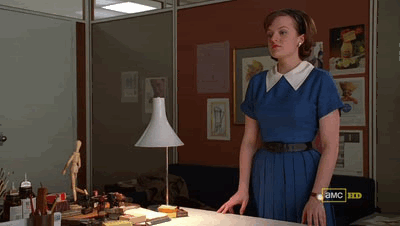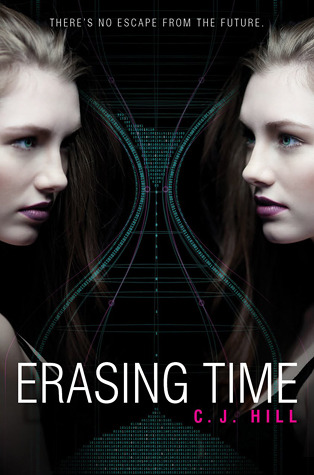I had a pitch session--my first live one ever--at LDStorymakers. I've done online pitches, but that is so different. All through my flight to Utah, and every night when I couldn't sleep, I went over and over my pitch. Changing it and trying my best to boil it down to the most important aspect of my book. In the end I did something different than my query.
I pitched to Eddie Schneider, Vice President of JABberwocky Literary Agency. And yes, he really does look this young and happy. I figure it's because he loves what he's doing and is a runner. A serious runner--unlike my last few years of on again off again.
Every time I saw him walking around the conference I didn't think of pitching to him (weird I know), but instead I thought, "I really need to get back into running and not stop."
Why?
Because I'm looking old and fat again. After losing 20 pounds last year and feeling great, I've put it all back on. I don't want to look my age. I don't want to look like a tired run down mom. Running and eating right really does change that.
He didn't ask my why I decided to pitch to him, but I had already decided my answer would be two fold. One, I need a no-nonsense get to work, logical and editorial agent on my side. And two, every time I looked at him I'd be reminded that my personal health is important to my overall image. Some people might have a problem with that, but like it or not, our public image eventually can effect our sales.
Okay, so this is how it went down. I arrived 10 minutes early and that's when it finally hit me FULL Force that I was about to pitch my book to a complete stranger. For weeks I'd been telling myself it didn't matter. It was just a good experience to have and if nothing came of it, no big deal. That worked until I was standing in front of the door waiting. All the "what ifs" started rattling around in my brain. The good and the bad.
I went in feeling just a bit shaky, clutching my one sheet of paper. Just in case. I'm proud to say I never used it and somehow the words tumbled out of my mouth on their own. Even my voice sounded weird to me because of my nerves, but somehow it didn't matter. I can even quote you pretty close to what I said.
The first thing you need to know is that everything you've ever believed about human evolution is a lie. A lie told to keep us from learning the truth. Aliens live among us. They work with us, teach our children. They are being punished and have been sentenced to watch over and protect their greatest mistake--us.I had more planned, but this is where he cut me off. I was startled and completely thrown off, but he was writing on a card and saying the story sounded interesting. All he needed to know was the title and genre.
Even though Caedan Frey's family has fulfilled this duty for thousands of years, it doesn't free him from his obligation as Prince in the year of the Reparation. He must marry a human in two months or the throne will revert to a rival family. A family who's short lived reigns in the past ended in catastrophe for humans. Atlantis, Pompeii and the black plague were a few of their signatures. Even though Caedan doesn't believe humans will evolve to see, much less control the magic, he knows the sooner he marries the better for everyone.
My head was spinning. I was kicking myself for NOT starting with title and genre, but I was still in query mode where I like to put it last. Then I was thinking, "Wait! I didn't get to Ryanne. I'm doing this all wrong." The story is equally Caedan and Ryanne's, but I start with Caedan in the book.
So I'm sitting there trying to process that he wants to read pages when I've committed the sin of giving him an entire 30 seconds of back story. It's important to the whole book so I felt it was necessary. Now I'm scared that he'll start reading and think he was misled about the plot of Fade Into Me. What if he says no just out of irritation? Surely he wouldn't, but what if he did? See the circular destructive path of my thoughts?
Back to my pitch. I asked him a few questions about his style of agenting, asked if he had questions for me and we finished early.
Yeah! and then "He must think I'm an idiot!"
It is what it is and I can't change it. The important thing is he asked for pages, right? I've already sent the submission to him.
With my confidence bolstered, I sent out 6 more queries yesterday. Here are the new totals:
- 12 sent (including pitch)
- 6 still out (no reply yet)
- 3 no thank you
- 2 partials
- 1 full
Have you ever pitched? Did you feel like throwing up before or after?
I sort of felt like being sick before AND after.Purpose of IWSG: To share and encourage. Writers can express doubts and concerns without fear of appearing foolish or weak. Those who have been through the fire can offer assistance and guidance. It’s a safe haven for insecure writers of all kinds!
Posting: The first Wednesday of every month is officially Insecure Writer’s Support Group day. Post your thoughts on your own blog. Talk about your doubts and the fears you have conquered. Discuss your struggles and triumphs. Offer a word of encouragement for others who are struggling. Visit others in the group and connect with your fellow writer - aim for a dozen new people each time. I'm currently #103.



.JPG)
.JPG)

.JPG)












